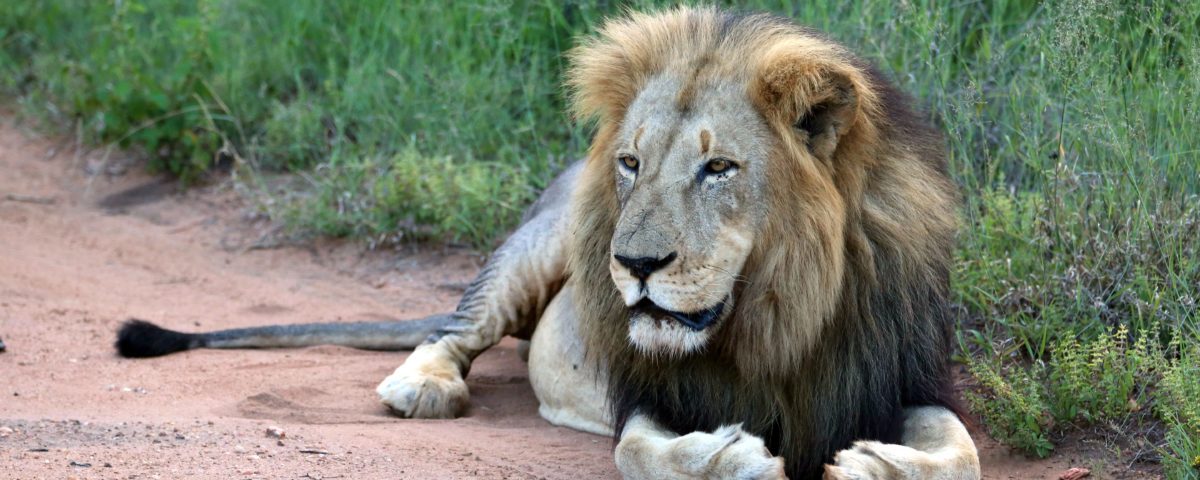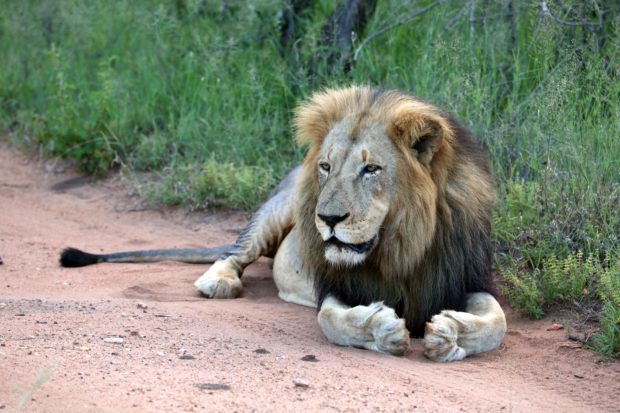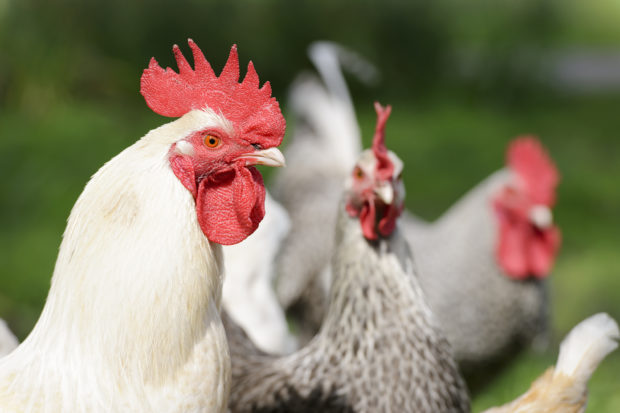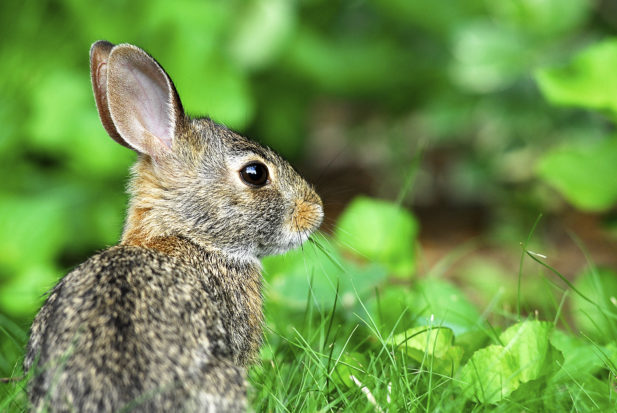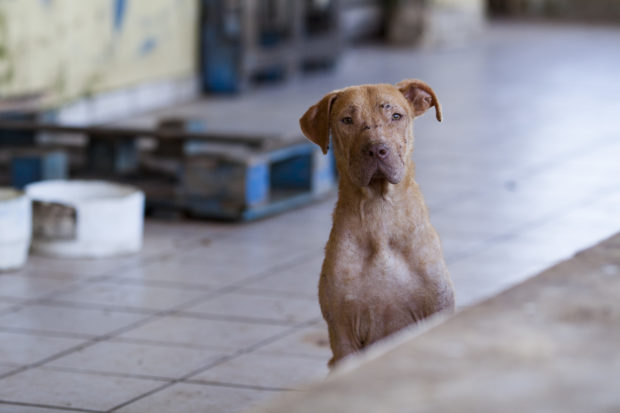We’re operating in a time of punctuated change for animals. It hardly means that we’ve been on a glide path to reform. And it doesn’t mean that we haven’t had setbacks or that we don’t have immense challenges ahead. But what it does mean is that The HSUS’s strategic, focused action, brandishing, and using many tools, has yielded an extraordinary set of reforms on a wide range of problems that afflict animals. Some of the gains articulated below close out problems, while others ameliorate them and give us hope for more progress ahead.
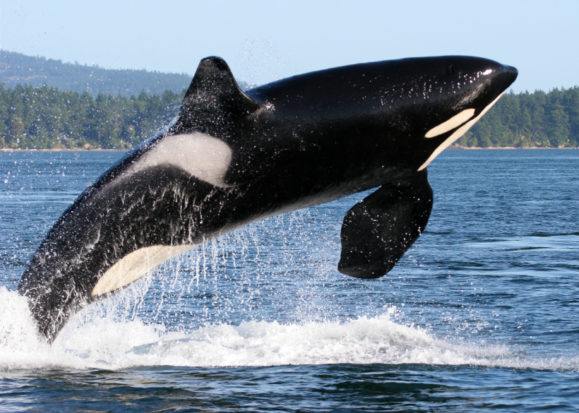
In a pathbreaking announcement for captive marine mammals, SeaWorld, in cooperation with The HSUS, announced in March that it would end all breeding of its orcas and it won’t obtain additional orcas from other sources. Photo by iStockphoto
The HSUS and its affiliates together are the number one providers of animal care in the world (touching more than 300,000 animals this year). We are also the number one advocacy organization driving transformational change for animals. Please do celebrate these gains, and let it remind you of the possibility of change for the problem areas that persist.
Taking the animal out of testing
In June, President Obama signed into law a bill that upgrades the Toxic Substances Control Act, a 40-year-old federal law regulating the use of chemicals. The bill contains – for the first time in any broader environmental and health protection statute – an explicit decree from Congress to minimize animal testing and to create a clear preference for the development and use of alternative methods and strategies. This will accelerate the movement away from animal tests for safety substantiation of chemicals, as well as pesticides, biocides, cosmetics, and other regulated substances. It’s not the only federal progress we’re seeing. The Environmental Protection Agency currently requires pesticide manufacturers to perform dozens of tests on dogs, rabbits, rats, mice, and guinea pigs, including six extremely cruel tests – perversely nicknamed the “six-pack” – that are carried out on more than 500 new pesticide products brought to market each year in the United States alone. Following negotiations with The HSUS and other stakeholders, the EPA announced a plan to phase out at least some of these obsolete animal testing practices in favor of alternatives that can provide the same information, more effectively, and without using animals. In October, Taiwan became the second major market in East Asia to take a stand against cosmetics cruelty with a vote to ban animal testing in the beauty industry.
We’ve all but stopped the import of lion trophies into the United States after we got the U.S. Fish and Wildlife Service to list African lions as threatened or endangered across their range. Photo by Vanessa Mignon
Cage-free cascade at home and abroad
We worked with virtually all the major food companies — that hadn’t yet addressed the issue of battery cages in their supply chain — to announce timelines for switching to cage-free eggs. The list includes Walmart, Kroger, Kraft Heinz, Safeway, and dozens more. In 2016, our movement to end cruel cage confinement around the world gained extraordinary ground, with Burger King agreeing to phase out gestation crates and battery cages throughout Latin America, and Arcos Dorados, which operates McDonald’s in 20 countries in the region, committing to switch to 100 percent cage-free eggs, among many others. Alsea, the largest restaurant operator in Latin America and Spain, announced a cage-free egg policy after several years of talks with HSI specialists, as did five other major restaurant companies in Latin America and two Mexican chains. In Canada, every major grocery chain, Tim Horton’s (the country’s largest restaurant chain), Burger King and A&W, and food service company Aramark all committed to transitioning to 100 percent cage-free eggs. McDonald’s South Africa announced plans to switch to 100 percent cage-free eggs. Compass Group and Sodexo, both leading food service providers, announced a global cage-free policy in partnership with HSI, and leading hospitality chain AccorHotels agreed to partner with HSI to eliminate cages from its global supply chain. We put a punctuation mark on our cage-free campaign by winning Question 3, a Massachusetts ballot measure banning the sale and production of eggs, veal, and pork from animals confined in cages, with a 78 percent “yes” vote. We also stifled “Right to Farm” constitutional amendments across the country—from Nebraska to Indiana to Oklahoma, where we defeated a ballot measure by more than 20 points. Our legal team notched a major win upholding California’s landmark farm animal protection law, which halted the cruel confinement of farm animals. The HSUS and HSI have made history for farm animals and, along with a coalition of allied organizations, we’ve set a path for eliminating cage confinement for farm animals and creating a better future for the billions of animals raised for food across the world.
Rash of federal rulemaking for animals
The Obama Administration completed a series of rulemaking actions at The HSUS’s urging: In July, the Obama Administration closed a loophole in federal law by finalizing a rule banning the slaughter of downer calves. The victory was celebrated by animal lovers around the United States and this was my most popular blog of the year. This year, we helped close a loophole in the Endangered Species Act regulations so that all captive tigers in the United States are now treated equally under that law, which should help curb the breeding of tigers for sale in the exotic pet trade. In addition, in response to a 2012 petition, we petitioned the USDA to ban public contact with large cats, bears, and primates, and the agency took preliminary action by issuing a formal notice that public contact with big cats four weeks of age or younger is a violation of the Animal Welfare Act. In one of the most notable gains for wildlife of the year, the U.S. Fish and Wildlife Service finalized a rule prohibiting cruel hunting methods and ruthless “predator control” culls on more than 76 million acres of National Wildlife Refuge lands in Alaska. This came months after the National Park Service enacted a similar rule prohibiting these cruel hunting methods on more than 20 million acres of national preserves it manages in the state. These methods were used to slaughter native carnivores in order to artificially inflate game populations for sport hunting, and included baiting brown bears, trapping bears with cruel leghold traps and snares, using airplanes to scout, land, and shoot brown bears, and killing mother black bears, wolves, and coyotes and their dependent young at their den sites. The NMFS issued an interim final rule to enhance the requirements for documentation and training to support the “dolphin-safe tuna” label, and extended the standards to all countries.
We worked with Perdue, Panera Bread, Pret a Manger, Compass Group, Aramark, and Sodexo to create policies to reduce the suffering hens raised for their meat endure. Photo by iStockphoto
Cracking down on wildlife trafficking
In addition to the Obama Administration’s anti-ivory-trade rule, Congress enacted the Eliminate, Neutralize, and Disrupt (END) Wildlife Trafficking Act to support global anti-poaching efforts, require an interagency approach and greater collaboration with governments of countries affected by wildlife trafficking and non-governmental organizations, allow serious wildlife crimes to trigger significant penalties under money-laundering statutes, and require annual reporting on how all tax dollars appropriated to fight wildlife trafficking are being spent. This action came months after the the U.S. Fish and Wildlife Service issued a final rule that will protect African elephants by curtailing the commercial ivory trade in the United States, which is estimated to be the world’s second largest market for ivory product sales, behind China. Voters also approved an HSUS-conceived ballot initiative in Oregon by a 70-30 vote to ban the intrastate trade of 12 types of animals most targeted by wildlife traffickers, including whales, sea turtles, elephants, rhinos, lions, tigers, leopards, cheetahs, jaguars, sharks, rays, and pangolins. Hawaii adopted a similar law, and just weeks ago, a state court judge in California upheld a similar law that The HSUS helped deliver in the Golden state. We helped increase protections for 113 species at the 2016 meeting of the Convention on International Trade in Endangered Species of Wild Fauna and Flora (CITES), including pangolins, barbary macaques, African grey parrots, African pygmy chameleons, arboreal alligator lizards, silky sharks, thresher sharks, devil rays, and more. In a marker of continuing momentum for our anti-ivory-trade campaign, the parties approved a resolution recommending the closure of domestic ivory markets that contribute to elephant poaching and the illegal ivory trade — the first time that a United Nations body has agreed on the urgency of shutting down ivory markets worldwide. The parties to CITES also rejected a proposal from Swaziland to allow limited international trade in rhino horn, which could have had potentially disastrous consequences for the remaining global rhino populations.
SeaWorld and Ringling embrace reforms for captive wildlife:
In a pathbreaking announcement for captive marine mammals, SeaWorld, in cooperation with The HSUS, announced in March that it would end all breeding of its orcas and it won’t obtain additional orcas from other sources. The company also announced, after negotiations with The HSUS, that it would phase out its theatrical orca shows in favor of orca exhibits that highlight the whales’ natural behaviors, and have no orcas at all in any new parks around the world. SeaWorld agreed to redouble its efforts to conduct rescue and rehabilitation for a wide variety of marine creatures in distress and to join The HSUS in our advocacy campaigns against commercial whaling, sealing, shark finning, and other cruelties. Finally, SeaWorld announced it would revamp food policies at all of its parks for 20 million visitors, including switching to cage-free eggs and gestation crate-free pork, and providing more plant-based meals. California followed with a law banning the breeding of captive orcas and their use for entertainment purposes. This broader movement questioning whether certain marine mammals should be held captive also got a major lift when the National Aquarium in Baltimore announced it will move its eight Atlantic bottlenose dolphins to a seaside sanctuary over the next four or five years. And the broader campaign against wild animal acts received its biggest boost in May when Ringling Bros. ended the use of elephants in its shows, ahead of schedule. We led efforts to pass the first two state laws in the country to protect elephants – banning the use of bullhooks on elephants in Rhode Island and California.
Luxury designer Giorgio Armani announced that all of his labels will go 100 percent fur-free, marking a historic day for the fashion industry and making a case that it’s no longer necessary for any clothing retailer to use real fur when we have perfectly suitable alternatives. Photo by iStockphoto
Corporate welfare reforms for chickens raised for meat
For the first time in our movement’s history, we’ve been able to achieve major corporate policy wins for broiler chickens (those raised for meat). We worked with Perdue (the fourth-largest poultry producer in the country), Panera Bread, and Pret a Manger (the first restaurant chains to address this issue), as well as Compass Group, Aramark, and Sodexo (the world’s three largest food service companies) to create policies to reduce the suffering these birds endure. That includes slowing rapid growth rates, improving living conditions, decreasing stocking density, and reducing suffering during slaughter. More broiler chickens are raised each year in our nation than any other type of animal, so these comprehensive changes will benefit millions of sensitive beings. With The HSUS’s success, along with other farm animal organizations making the plight of broiler chickens a priority, we’ve set the stage for a historic shift in how nine billion chickens are raised and killed in the United States.
Armani goes fur free
Luxury designer Giorgio Armani announced that all of his labels will go 100 percent fur-free, marking a historic day for the fashion industry and making a case that it’s no longer necessary for any clothing retailer to use real fur when we have perfectly suitable alternatives. Armani, one of the world’s best known fashion designers who is credited with pioneering red-carpet fashion, committed to the policy after working with The HSUS and the Fur Free Alliance, a coalition of 40 animal protection organizations in 28 countries working to end the fur trade.
Establishing anti-cruelty policies all over the world
Until recently, American soldiers who committed acts of cruelty against animals on military bases outside the United States could not be charged because U.S. state cruelty laws cannot be applied internationally. In October, President Obama signed an executive order closing this loophole. The new provision under the Uniform Code of Military Justice will now apply anywhere in the world where the military is stationed and will be on a par with states’ animal cruelty statutes. We’ll also continue to upgrade animal protection in Puerto Rico, with our Humane Puerto Rico program. Internationally, we’ve helped achieve a temporary ban on dog culling and animal fighting in Bangladesh. HSI helped enact animal cruelty legislation in El Salvador, including a dogfighting ban and the requirement that animal welfare be included within public school curricula. Similar legislation was also enacted in Honduras that included a dogfighting ban and protection for all species of animals, including wildlife and farm animals.
We will continue to upgrade animal protection in Puerto Rico, with our Humane Puerto Rico program. Above, a street dog in Puerto Rico. Photo by Dennis M. Rivera Pichardo/AP Images for The HSUS
Progress against trophy hunting
After a massive outpouring of public concern led by The HSUS and other advocates, the Florida Fish and Wildlife Conservation Commission voted to forego its controversial black bear hunt for 2016. We also joined as co-petitioner to list the Florida black bear as endangered under the Endangered Species Act, to protect a subspecies being hemmed in on all sides as development continues at a brisk pace in Florida. After a hue and cry from citizens, and an HSUS legal petition to the legislature, the New Hampshire Fish and Game Commission voted to withdraw a proposal to initiate a bobcat hunting, hounding, and trapping season. We’ve all but stopped the import of lion trophies to the United States after we got the U.S. Fish and Wildlife Service to list African lions as threatened or endangered across their range. The agency also made a specific announcement not to allow the import of lions killed in canned hunts in South Africa – the biggest source of lion trophies in the world by far.
Cracking down on puppy mills
Boston, Philadelphia, Las Vegas, Sarasota, St. Petersburg, Portland, Maine, and dozens of other localities enacted ordinances to ban or restrict the sale of puppy mill dogs. In 2016, we drove the number of local jurisdictions with these laws to more than 200. We’re pushing at the statewide level, too. An HSUS report linked New Jersey pet stores to a number of awful puppy mills. Maryland banned the sale of puppies at flea markets and other outdoor areas. The U.S. Department of Agriculture shuttered six notorious puppy mills after we provided information and applied pressure. We raided mills throughout the nation, saving dogs and exposing this dirty underside of the pet trade. Through our Puppy Friendly Pet Stores Conversion Program – where we work to change the business models of pet stores to forgo puppy mill sales and instead work with shelters and rescues on in-store adoptions – we’ve helped adopt out more than 9,000 dogs.
I’m proud that together we achieved such tangible gains in these key areas and many others this year. None of this happens without a massive outpouring of concern, and that includes you. Each one of us has the power to make the world a better place, and it’s our duty to stay the course and to raise our voices.
The post Top 10 victories for all animals in 2016 appeared first on A Humane Nation.
Enviroshop is maintained by dedicated NetSys Interactive Inc. owners & employees who generously contribute their time to maintenance & editing, web design, custom programming, & website hosting for Enviroshop.
